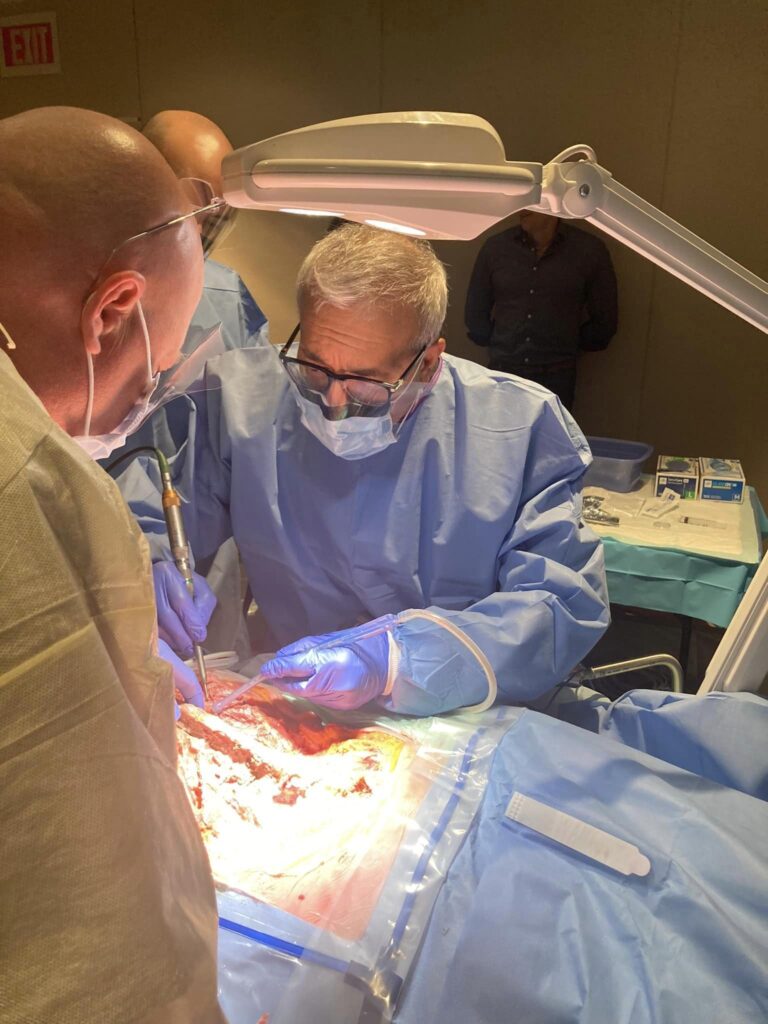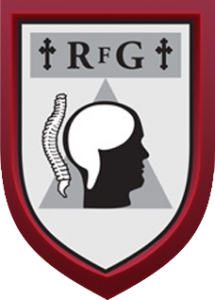Spinal Surgeries
Surgeries for Cervical Laminectomy, Lumbar Disk Surgery, Spinal Fusion
Spinal Surgeries
Please read below for definitions
Dr. Ramsis F. Ghaly is a board certified neurosurgeon specializing in brain, spine and carpal tunnel surgeries
Cervical Laminectomy
Cervical laminectomy is a procedure to treat spinal stenosis. Spinal stenosis is a condition where there is narrowing of the spinal canal and often the neural foramen that causes compression of the spinal cord and/or nerve roots.The back of the spinal canal is removed by cutting the lamina to provide more space for the spinal cord and nerve roots.
By relieving pressure on the spinal cord it is the goal of cervical laminectomy to stop the progression of damage to the spinal cord and allow for as much recovery of function as possible.
Lumbar Disk Surgery
This minimally invasive technique is used to remove the herniated portion of a vertebral disc. This procedure is very effective in reducing or eliminating pain caused by nerve compression in the leg (sciatic). This surgery is performed through a small incision on the back.
A small incision is made over the herniated disk so the surgeon can make a small opening in the lamina. The compressed nerve root and the herniated disc can be seen through this “window”.
The surgeon uses a nerve retractor to gently move the spinal nerve away from the herniated disc. The herniated portion of the disc is removed, eliminating pressure on the nerve root. Only the damaged portion of the disc is removed, leaving any healthy disc to perform its function as a cushion between the vertebrae.
Spinal Fusion
This procedure corrects the spinal condition caused by spondylolisthesis, in which weekend joints or fractured bones allow a vertebrae to slip forward and pinch a nerve root. The pinched nerve can cause pain to radiate down to the legs and feet through the sciatic nerve. The lamina (the portion of the vertebrae that covers the spinal cord is removed.
Removing the lamina relieves pressure and pain. Any bone that may be pinching the nerve root is cleared away. Bone grafts are added to the sides of the spine. The grafted bone will fuse to the spine, forming a bone. Rods are secured to the spine with screws to hold the spine and discs in place while the gratfs heal. Over time, the bone will fuse into place, keeping the discs from slipping.
Dr. Ghaly performing a spinal surgery

In-Person Appointment, Second Opinion, Telehealth, Records Review
Please contact Dr. Ghaly for an in person appointment telehealth, second opinion or records review if you have been diagnosed with or are suffering from brain related issues
For Billing and Insurance Inquiry: HealthPCP
Phone: 708-532-6029 • Fax: 708-532-6095
Our Practice
Fox Valley Office Commons
4260 Westbrook, Dr.
Suite 127
Aurora, IL.60504
Phone: 630-978-7500 /
Voice Mail: 630-978-7541
Phone: 630-578-6143 /
Voice Mail: 630-978-7583
Fax: 630-978-7540
Fax: 331-256-6393
Dr. Ramsis Ghaly All Rights Reserved © 2023
Privacy Policy
Disclaimers
Site by Alt Media Chicago
